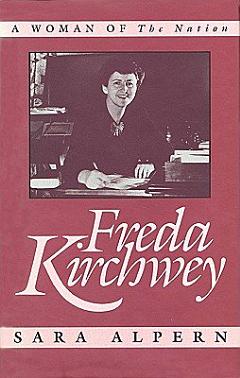Freda Kirchwey--writer, editor, publisher, opinionmaker, feminist, wife, and mother--was a salient figure in twentieth-century America, a beacon for liberals and activists of her era. A journalist with The Nation from 1918 to 1955--owner, editor, and publisher after 1937--she was an advocate of advanced ideas about sexual freedom and birth control and a tireless foe of fascism. The quintessential new woman, she combined a private and highly visible public life.
In this first full-scale biography of Kirchwey, Sara Alpern weaves the strands of gender-related issues with larger social explorations. An early feminist, from a privileged and progressive background, Kirchwey was determined to enjoy both career and marriage, but the early deaths of two of her three sons and strained relations with her husband led to self-doubt about her identity. Yet despite any hidden misgivings, her humanitarianism and outstanding journalistic and critical gifts projected her onto the larger stage of public life. Alpern richly describes Kirchwey's extraordinary work editing The Nation, one of the longest surviving American liberal journals, and shaping public opinion on domestic and international affairs. Kirchwey focused on large political and international issues--the Spanish Civil War, democracy versus fascism and Nazism, pacifism and collective security, the plight of refugees and Zionism, McCarthyism and censorship, and, finally, the peaceful employment of atomic power.
Freda Kirchwey's life story introduces a remarkable woman to a new generation struggling with personal and career goals as it recalls the efflorescence of liberalism for an older generation of readers.

